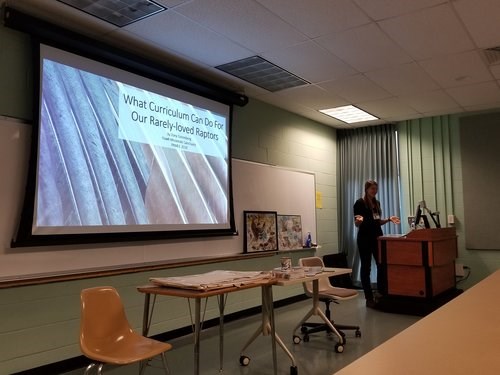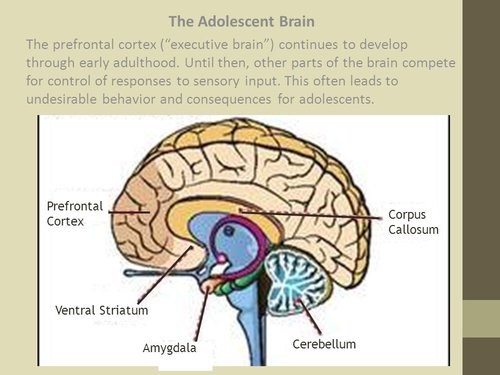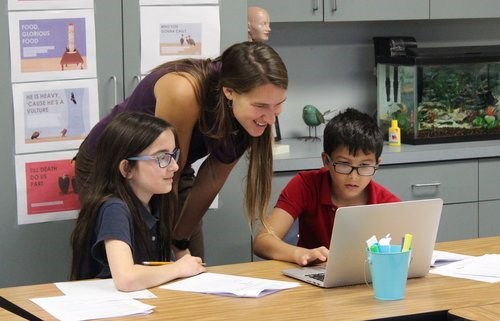Informally Influential
Posted on in In the Field by Zoey Greenberg, Science Outreach CoordinatorZoey Greenberg, Science Outreach Coordinator

This October, HMS Director of Education Erin Brown and I presented at the 2nd annual conference for PAMLE, the Pennsylvania Association for Middle Level Education. The keynote speaker, Dave F. Brown, co-author of the book What Every Middle-School Teacher Should Know, started the day off with a potent analysis of how the average preteen views the world. Incorporating neuroscience, he made a compelling case for increased compassion towards adolescents and the importance of cultivating supportive learning environments in middle school classrooms.

Dr. Brown also highlighted the importance of identity development, reminding us that middle school students are discovering who they want to be and what they value. This point stuck with me for the remainder of the day. I tried to remember what it felt like to be a seventh grader and found myself in agreement: the first memories that resurfaced were of social belonging, and attempts to carve space for myself in an ocean of others.
Towards the end of my own presentation at the conference, I received a comment from a teacher that drove my contemplations deeper. He told me he has many female science students who begin with enthusiasm but almost always fade away from science because they claim it’s associated with boys and technology. This got me thinking about ways in which informal education has a role in the presentation of science, not just as a career, but as an exploration of identity.
Many of us would agree that science is largely defined by the scientific process, which includes inquisition and curiosity. Some, including myself, would say that passion is often an important catalyst for scientific discovery. Schools work hard to prepare students for their future, as they should. However, teachers face a plethora of challenges and deadlines that can sometimes limit their creative methodology when introducing an entire field of study. Science and technology have quickly become buzz words of the future; however, I would argue that the definition of science in this context is related heavily to human progress and less to other important avenues such as environmental protection or the classically termed “dying breeds” of natural history and zoology.

It is within this gap that I feel that Hawk Mountain plays a huge role. We create educational materials for the classroom that give teachers options for how to design their own framework of science. We align these lesson plans with standards, include the most up-to-date raptor science, and offer training to teachers whenever possible. In this way, I believe that we are paving a beautiful path towards an inclusive definition of the word “science” that can be offered to young students who may simply identify as lovers of wildlife but aren’t sure how to weave this piece of themselves into their academics.
If Hawk Mountain staff had come into my 7th grade classroom and told me that there were real live adults that studied birds of prey for a living, my jaw would have hit the floor. Part of the reason I feel such pride in this organization is because we expose the young and the old to a breathtaking dimension of the natural world, and we put effort into reaching those that cannot make it to our site. I regretfully shied away from science in middle school, and I want to acknowledge the role that informal education can have in welcoming adolescents to a rewarding and impactful field. Raptors provide an intriguing route into the realm of science and Hawk Mountain is well equipped to assist teachers on the road to creative instruction.
Erin and I were the only non-formal presenters at this conference, and I was heartened to see that our presence was valued. I have immense respect for the consideration that attendees at this year’s PAMLE conference showed for their student’s well being, by assessing ways to enhance how we, as a community invested in youth, can encourage student growth. Our world is brimming with amazing teachers, and I feel optimistic that through partnership between informal and formal educators, innovative education has no limits. Trust me, even a turkey vulture roost can become a world of discovery with the right attitude and freedom to set the stage.